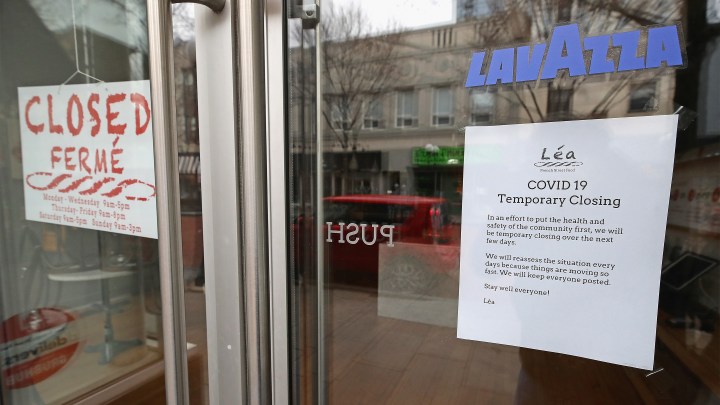
What kind of unemployment benefits are right for the unprecedented time of COVID-19?
What kind of unemployment benefits are right for the unprecedented time of COVID-19?

The House is set to vote today on the $2 trillion stimulus bill to address the economic fallout of the COVID-19 pandemic. It includes expanded unemployment insurance that could surpass some low-wage workers’ take-home pay. The measure passed unanimously in the Senate, despite four Republicans’ initial objections to the unemployment benefit provision, which they said could incentivize unemployment.
Usually, jobless benefits replace just a portion of a worker’s lost wages, but the debate over how that changes people’s behavior flares up pretty much every time government benefits are extended or made more generous, according to Northwestern University economist Matthew Notowidigdo.
“The concern is that it’s going to lead people to stay unemployed longer,” he said.
It’s a basic principle of economics: The more you subsidize a behavior, the more people do it. And Notowidigdo said there’s pretty solid evidence from countries all over the world that does happen. The longer benefits are available, the longer, on average, people will take to find a job.
“That’s a consistent finding that’s gone back decades,” he said.
That could have some bad effects, according to Angela Rachidi, a scholar at the conservative American Enterprise Institute.
“Their skills deteriorate, they become less able to join the labor market when it is time to join the labor market,” Rachidi said.
But she acknowledges this is an unusual situation. And Luke Shaefer, a professor of social work and public policy at the University of Michigan, said for every person who might use these benefits when they don’t need them, there are others who truly do need them.
“The trade-off is we stabilize workers, we stabilize families, we reduce housing insecurity, we reduce other kinds of material hardship and improve health,” he said.
That has big benefits for the economy and society as a whole, Shaefer said. As for the current situation, Notowidigdo said giving people an incentive not to work might be a good thing.
“That could benefit us all in terms of reducing the spread of this virus,” he said, adding that because so many businesses are shut down due to COVID-19, there may not be a lot of jobs available right now anyway.
There’s a lot happening in the world. Through it all, Marketplace is here for you.
You rely on Marketplace to break down the world’s events and tell you how it affects you in a fact-based, approachable way. We rely on your financial support to keep making that possible.
Your donation today powers the independent journalism that you rely on. For just $5/month, you can help sustain Marketplace so we can keep reporting on the things that matter to you.


















